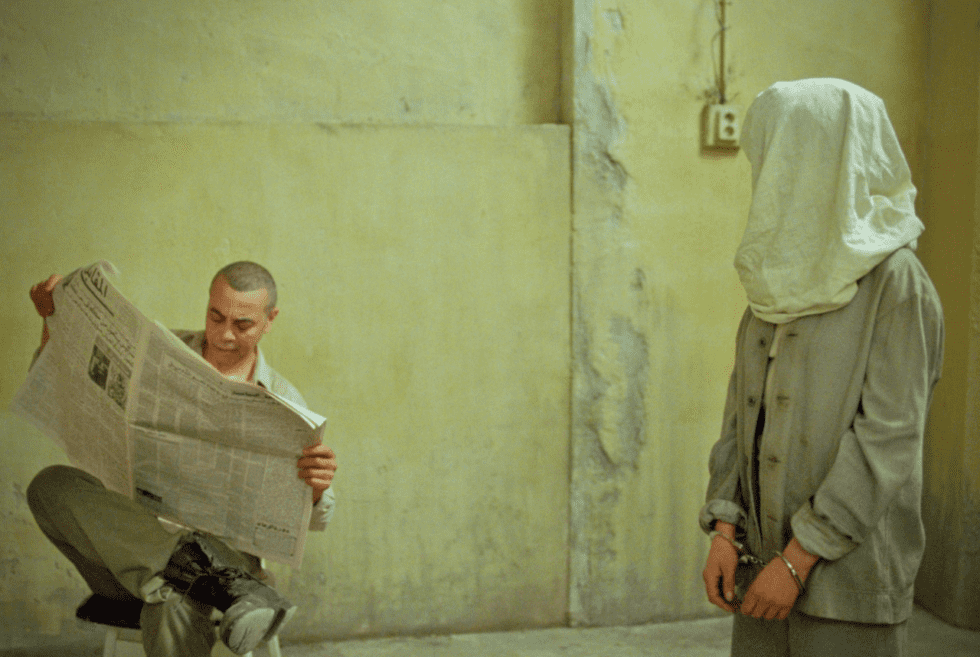Contents
- The Lobster
- Roma
- Raw
- The Host
- I Am Love
- A Pigeon Sat on a Branch Reflecting on Existence
- The Square
- Pan’s Labyrinth
- Incendies
- The Diving Bell and the Butterfly
- Departures
- Cemetery of Splendor
- Phoenix
- Ravenous
- The Wailing
- The Look of Silence
- The Invisible Guest
- 22 July
- Nymphomaniac
- Nocturama
- Faces Places
- Blue Is The Warmest Colour
- Time Share
- Things To Come
- Taxi
- City of God
- Mustang
- Girlhood
- Us And Them
- Y Tu Mamá También
So, Netflix isn’t exactly the place you want to go to for some serious cache of foreign films (The Criterion Collection, anyone?), but it still has a fairly dense lineup of cinematic masterpieces made outside America.
Maybe you’re trying to flex your inner film buff. Or perhaps you’re interested in what kind of movies other cultures have made or are making these days. Either way, this list should get you started. It’s by no means a definitive roster of foreign cinema, mind you, nor a ranked one.
Rather, this hodgepodge should act as in introductory attempt to widen your cinematic appreciation. By watching these, you sharpen your viewing habits and open yourself up to a broader spectrum of world cinema. Also, they serve as a reminder that you can find a goldmine of compelling, urgent stories beyond the fences of Hollywood.
Indeed, there’s a lot more to watch than Marvel popcorn blockbusters and rom-coms — no shade intended. You can spend Friday night tuning in to a documentary about the power of mass protest. Or perhaps you can watch a Chinese love story that’s not about them getting together.
But if you don’t care about any of that, knowing a foreign film is a nice way to seem cultured and impress your partner. Watch The Lobster with them and talk at length about the significance of certain shots — we promise they’ll think you’re the next François Truffaut!
One thing, though: Just make sure they don’t see through your bluff. Have fun watching! And make sure the subtitles are on.
30 Best Foreign Films On Netflix
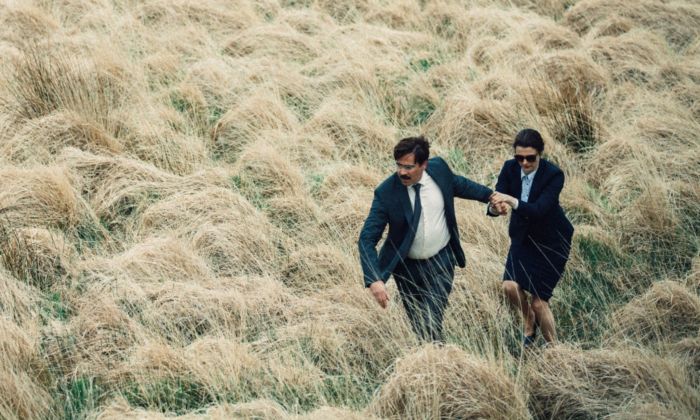
The Lobster
The Lobster, released in 2015, is about an alternate future in which single individuals are given only 45 days to find a romantic partner. Failure to do so will result in animal conversion therapy — as in you’re going to become an animal if you don’t get hitched.
The film follows David (Colin Farrell), newly single after his wife left him for another man, as he tries to find a partner. In the hotel where much of the 45-day courtship occurs, David meets an unnamed woman (Rachel Weisz) with whom he attempts to start a relationship.
As a dark comedy, The Lobster doesn’t pull any punches, putting both David and Wiesz’s character, along with their crew of unlucky-in-loves, through a myriad of funny but always devastating missteps.
Here, an escape plan goes awry, a pack of people try to fight for change, and misshapen hierarchical politics broil under the surface of a revolution. All the makings of an epic, three-hour action-adventure with swords, shields, magic, and cruel dissidents.
The Lobster has none of that. There’s no magic here. Or perhaps human folly, the fragility of emotions, and friendship plain and simple could be magic. A dark and twisted one that’s ultimately hard to understand.
Director: Yorgos Lanthimos – Screenplay: Yorgos Lanthimos, Efthymis Filippou – Cast: Colin Farrell, Rachel Weisz, Jessica Barden – Run Time: – 1h 58m
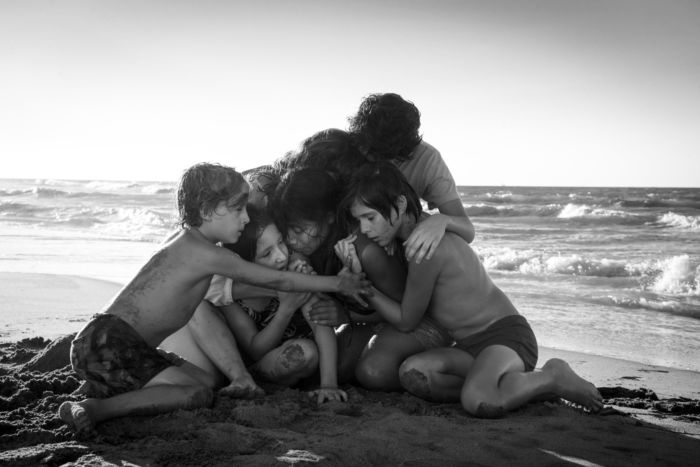
Roma
Roma, a film by Gravity director Alfonso Cuarón, is up for 10 oscars. If you’re reading this and it’s past Feb. 25, chances are it’s already won a few. No surprise there — Roma, much unlike, is Cuarón’s most deeply personal work yet, touching on memories of his childhood.
It’s about Cleo (Yalitza Aparicio), a servant of a well-off family in Mexico City in the ‘70s. Often going on trips with the family and loving the children in her motherly ways, she is more a part of the family than a mere maid. She is also often silent but very earnest, always wanting to do a good job.
She’s a figure of love to the family she serves, but she’s also an apparition. She’s there when needed, but she’s learned to disappear completely when family foibles arise, making sure to stay out of the way.
When a pregnancy disrupts Cleo’s life, everything nearly falls apart, and Cleo becomes increasingly worried about what the future holds. Roma spends roughly a year following Cleo as a mother-to-be, all while she tries to support a family whose bliss is fraying and moves through a rapidly shifting political landscape.
Director: Alfonso Cuarón – Screenplay: Alfonso Cuarón – Cast: Yalitza Aparicio, Marina de Tavira, Diego Cortina Autrey – Run Time: – 2h 15m
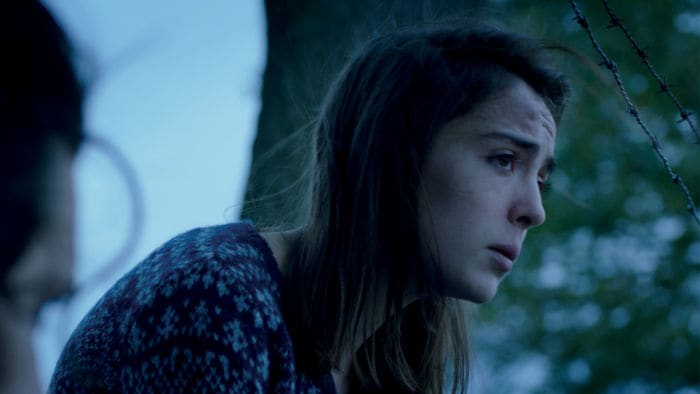
Raw
Raw, by Julia Ducournau, is more than a distaff body horror — it’s also a film of potent violence and sexuality. It’s shocking, disgusting, and absolutely insane, but these are anchored by immersiveness and tantalizing symbolism that film almost feels mythic; the the horrors are more quiet spectacles than psychological manipulation.
It follows Justine (Garance Marillier), a vegetarian who’s a freshman at a veterinary college who suddenly becomes a carnivore hungry for all kinds of flesh. Honestly, with a description like that, do you really need any more convincing? Beware, though: this film is not for the faint of heart. There will be blood.
Marked by skilled filmmaking, Raw doesn’t do gore just for gore’s sake. It’s more about the internal turmoil of trying to fit in a new environment, losing something precious, and being shackled by other people’s expectations.
Director: Julia Ducournau – Screenplay: Julia Ducournau – Cast: Julia Ducournau – Run Time: – 1h 39m
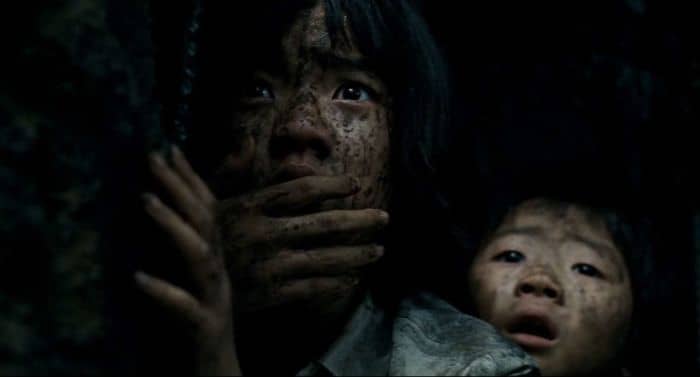
The Host
The Host, by revered cinematic auteur Bong Joon Ho, is part horror-thriller and part political satire, but 100 percent engrossing.
The Host is essentially a monster film, only there’s no easily identifiable monster at first like in the B-Movies of yesteryear; instead, it’s aldehyde or HCHO, and possibly a radioactive variant, at that.
The movie starts in the Yongsan U.S. Army base in Seoul, South Korea, where an American mortician (Scott Wilson) orders Korea subordinate to chuck bottles of dirty formaldehyde down the drain, which eventually ends up in the Han River.
The film pushes in closes to focus on the Parks: Park Hee-Bong (Byun Hee-Bong), the father who runs a small snack shop by the river; Kang-Du (Song Kang-Ho), his dim-witted son; Nam-Il (Park Hae-Il), no better than the other son; and Nam-Joo (Bae Doo-Na), a skilled archer and the complete inverse of her genetically unlucky brothers.
Tension starts when a monster snatches away a Park family member from the shore, but the real tensions starts when the whole family plots vengeance.
Director: Joon-ho Bong – Screenplay: Joon-ho Bong, Won-jun Ha, Chul-hyun Baek – Cast: Kang-ho Song, Hee-Bong Byun, Hae-il Park – Run Time: – 2h
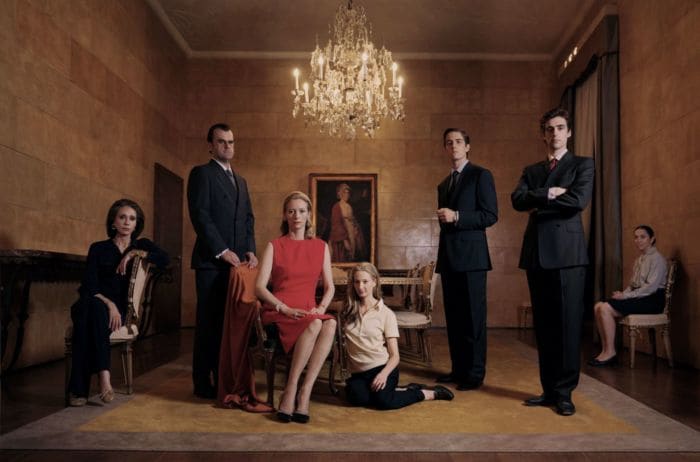
I Am Love
I Am Love begins with Emma (Tilda Swinton) at the opulent Recchi house as she prepares for the birthday party of the patriarch. She’s his wife but seems more akin to something between a waitress and a caretaker.
That’s really all you need to know about this film, which is mainly about familial bonds and the plethora of desires that get repressed by obligation, responsibility, and staying shacked up in a grand prison of a mansion. For that reason, I Am Love’s plot is hard to put into words.
But no matter. The brilliant filmmaker behind all this, Luca Guadagnino, doesn’t care much about plot, anyway. Here’s what he cares about: mood, feeling, atmosphere, sensory experiences. Fingers caressing plants. A car moving upward through a mountain. Bees hovering near flowers. The taste of fine shrimp.
Makes sense? Probably not. I Am Love is a film that dares to be experienced, not merely seen. It is both a tale and a canvas of inexplicable emotions, a beautiful impressionist work of love and lust bubbling up the surface, faltering, then spilling with hostility.
Director: Luca Guadagnino – Screenplay: Barbara Alberti, Ivan Cotroneo, Walter Fasano, Luca Guadagnino – Cast: Tilda Swinton, Flavio Parenti, Edoardo Gabbriellini – Run Time: – 2h
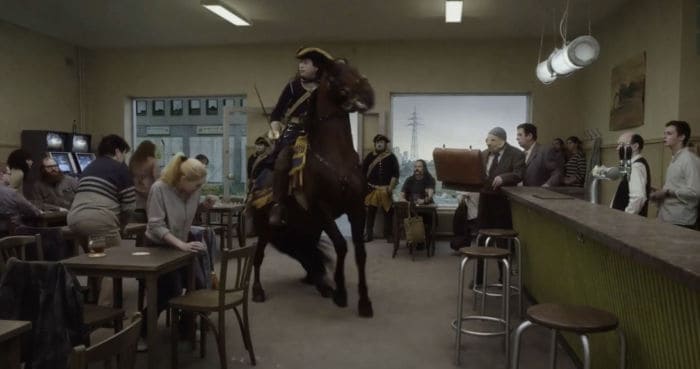
A Pigeon Sat on a Branch Reflecting on Existence
If only there were an Oscar for Best Title, this film will probably win it fair and square. A Pigeon Sat on a Branch Reflecting on Existence, released in 2015, is about the kinds of people things do to pass time on Earth.
Work, play, suffering, pleasure — basically everything that happens on this planet: waste, gain, stagnation. For that reason, the film is a series of various scenes; small vignettes of varying length, all set in Gothenburg, Sweden.
If this film had a tagline, it would probably be, “What’s the point?” Indeed, what’s the point? Director Roy Andersson asks us that question in the first few scenes, poking fun at the innate uselessness of all human activities on Earth. At first, it sounds funny, even ridiculous. But by the end you’ll be exactly like the titular pigeon, reflecting on existence, too.
Director: Roy Andersson – Screenplay: Roy Andersson – Cast: Holger Andersson, Nils Westblom, Viktor Gyllenberg – Run Time: – 1h 41m
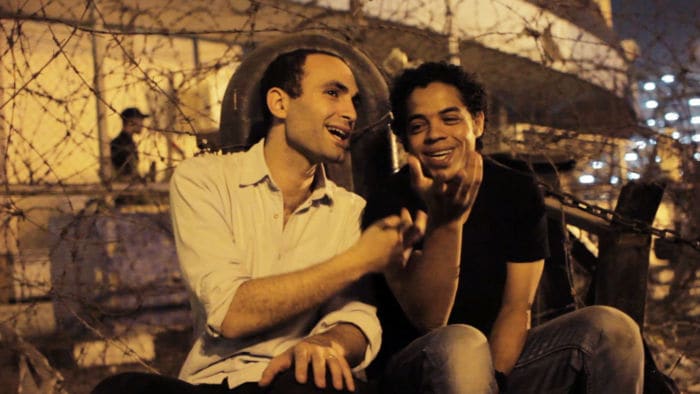
The Square
Not to be confused with the also excellent 2017 film of the same name, The Square, which came out in 2013, is an excellent glimpse at a real-life political revolution.
It’s a documentary by Jehane Noujaim about the 2011 uprising in the Tahrir Square in Cairo, Egypt and its aftermath. When you hear documentaries, you think talking heads, nameplates, voiceovers, and heavy use of exposition. The Square transcends such tropes and elevate nonfiction as both an art form and a medium for deeper comprehension.
As such, The Square, like any documentary, is heavy on information. But unlike most members of its species, it’s vivid, lyrical, and acutely atmospheric. However aesthetically pleasing it is, though, at the end of the day, it’s a sobering account of a country vastly in disagreement with its people, one that’s limiting freedoms that should be accessible to all.
Director: Jehane Noujaim – Cast: Ahmed Hassan, Khalid Abdalla, Magdy Ashour – Run Time: – 1h 48m
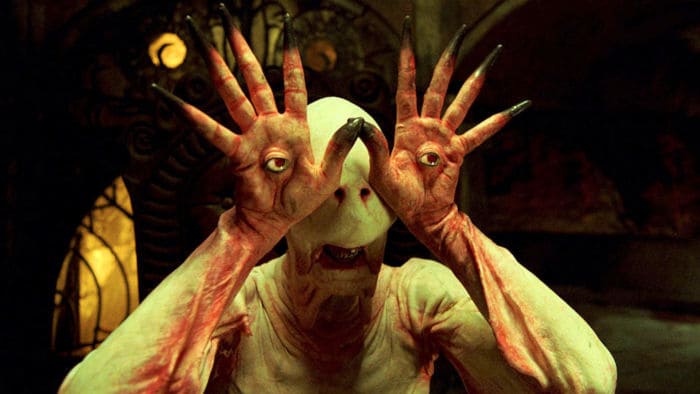
Pan’s Labyrinth
Pan’s Labyrinth was made in 2006, but it can still easily give most films made today a run for their money. Made by the brilliant Oscar-winning director Guillermo del Toro, this film is what you get when you dip Alice In Wonderland in a tar pit, pour grease all over it, and sprinkle it with dark magic.
A visually dazzling fairy tale set Franco-era Spain, you could say that Pan’s Labyrinth is a deeply political film, illustrating the boundaries and tolls of totalitarianism. Embedded in its DNA is del Toro’s ingenious and unmistakable brand of Gothic fantasy.
The year is 1944. Fascists have emerged victorious from the brutal civil war in Spain. We meet Ofelia (Ivana Baquero), who’s traveling with her mother, Carmen (Ariadna Gil), to go live with her new stepfather, Vidal (Sergi Lopez), a Nationalist army captain.
Ofelia finally arrives at her new home, and there she realizes Vidal doesn’t care for her one bit, only the son her mother is carrying. Like all great tales, Pan’s Labyrinth is about many things: coming of age, womanhood, and a journey of overcoming evil. The level of filmmaking here is staggering, as is its visual palette.
At its core, though, is a story of survival and imagination.
Director: Guillermo del Toro – Screenplay: Guillermo del Toro – Cast: Ivana Baquero, Ariadna Gil, Sergi López – Run Time: – 1h 58m
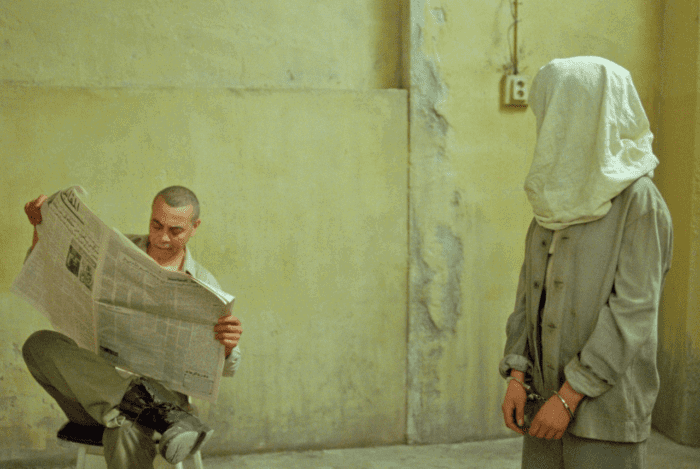
Incendies
Before he made Arrival and Blade Runner 2049, the exemplary director Denis Villeneuve made Incendies, a little-known foreign film adapted from Wajdi Mouawad’s 2003 play Scorched.
Middle East turmoil serves as the perfect template for a Greek tragedy; or is it the other way around?
In any case, Incendies tells the mysterious life of Nawal Marwan (Lubna Azabal), a refugee who escaped an unidentified Middle East country to Québec. We meet her when she’s dead: In her last will and testament, she asks her adult children to deliver two sealed envelopes to a father and a brother they hadn’t known until now.
Incendies dips in and out of flashbacks to show Nawal’s brush-up with Middle East conflict. It’s a deft look at trauma and the cost of atrocities, amazingly pulling that sentimentality without resorting to showing violence mindlessly.
Director: Denis Villeneuve – Screenplay: Denis Villeneuve, Valérie Beaugrand-Champagne – Cast: Lubna Azabal, Mélissa Désormeaux-Poulin, Maxim Gaudette – Run Time: – 2h 10m
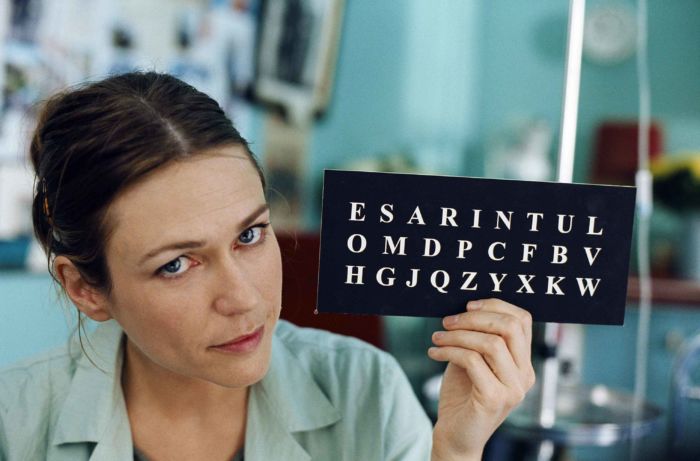
The Diving Bell and the Butterfly
This film takes to screen the real-life story of Jean-Dominique Bauby, an editor for the French version of Elle who woke up one day from stroke-induced coma and found himself wrought with locked-in syndrome, a rare affliction that leaves the mind aware but the body completely paralyzed.
The only movement Jean-Dominique could make was flickering his left eyelid up and down. With the help of a highly advanced alphabet system, Jean-Dominique was able to write a whole memoir, released in 1997.
Ten years later, the film by celebrated filmmaker Julian Schnabel came, which at its core is about finding happiness in spite of inexplicable tragedy. Schnabel did something most filmmakers wouldn’t even dare of doing: have the first 40 minutes be from Jean-Dominique’s point of view, blurred, vague, and terrified.
With that, he elevated the film from mere pity-throwing pseudo-sympathetic garbage into a visceral, tender portrait of empathy, letting us have an idea of what it must be like to be in the protagonist’s shoes.
Director: Julian Schnabel – Screenplay: Julian Schnabel – Cast: Mathieu Amalric, Emmanuelle Seigner, Marie-Josée Croze – Run Time: – 1h 52m
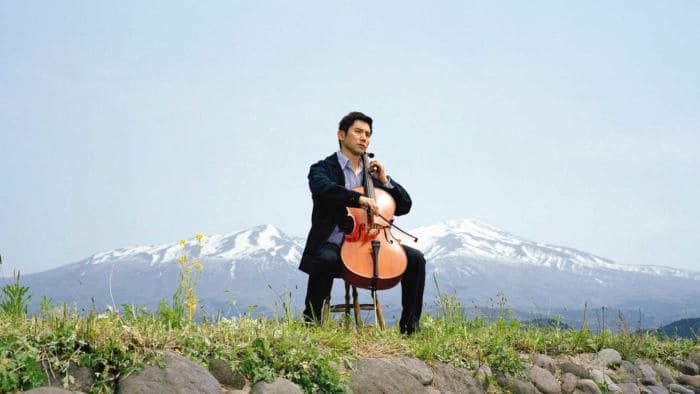
Departures
Departures follows neck-deep-in-debt Daigo (Masahiro Motoki), a cello player for a struggling orchestra. When his company folds, Daigo returns to the quaint rural community where his late mother ran a café and begins seeking new work.
He sees an ad for what he thinks is a travel company — an easy mistake, seeing as it’s called “Departures” — and fumbles his way on a new, unusual job: helping prepare the dead for funeral rites.
A person would feel a certain discomfort and perhaps even tiny panic on any new job, even more so anything involving the dead. Daigo’s initial apprehension is no surprise. His shrewd boss (Tsutomu Yamazaki) eventually shows him the ropes, and by extension, how such a seemingly macabre job can bring peace to both the living and the dead.
Director: Yôjirô Takita – Screenplay: Kundô Koyama – Cast: Masahiro Motoki, Ryôko Hirosue, Tsutomu Yamazaki – Run Time: – 2h 10m
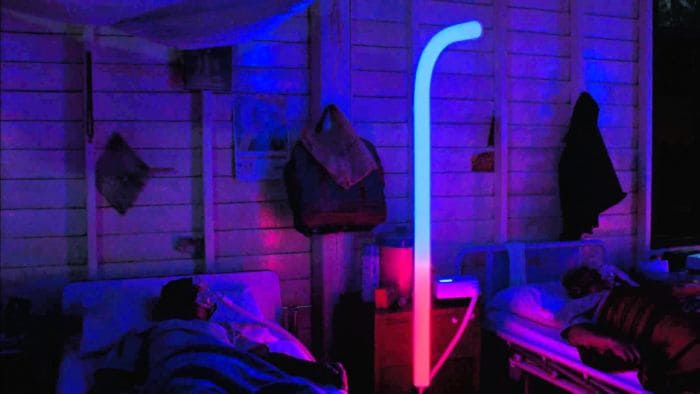
Cemetery of Splendor
If you’ve never seen a film by Apichatpong Weerasethakul, you might Cemetery of Splendor a bit weird for your taste. But that’s exactly the point of discovery: trying out what you won’t necessarily try uncoaxed.
Like any Weerasethakul picture, the story in Cemetery of Splendor is loose, vague, and like a vein, hard to see on first glimpse alone. But, indeed, just like a vein, it’s integrated underneath, pulsating with life, power, and energy.
From the opening frame to the last, each moment of Cemetery of Splendor is packed with so much visual information that it’ll likely take you multiple viewings to get a sense of what it is about, exactly. Or you can just forget all that and surrender to its beautiful hypnotism.
It is serene, sensual, and highly surreal. A school is temporarily transformed into a military hospital. Inside, a crew of veterans are at odds with an inexplicably incurable sleeping disorder. Outside, machines claw underneath in search of a “cemetery of kings,” a mythic graveyard buried beneath the schoolyard possibly holding the cure. This is as weird as it gets, but in the best way.
Director: Apichatpong Weerasethakul – Screenplay: Apichatpong Weerasethakul – Cast: Jenjira Pongpas, Banlop Lomnoi, Jarinpattra Rueangram – Run Time: – 2h 2m
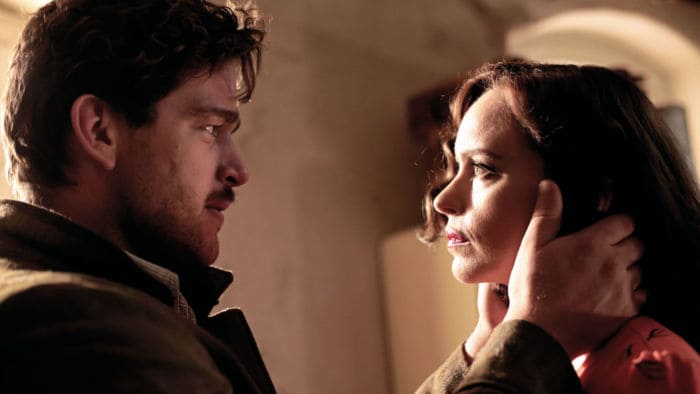
Phoenix
Phoenix, which takes places in a post-World War II Berlin, deals with loss, identity, and a quest for answers and meaning, even if they come in a scattershot manner.
We follow a Jewish singer named Nelly (Nina Hoss), who’d been shot in the face before her Auschwitz rescue, as she returns to the bombed-out German capital to undergo reconstructive surgery.
After the procedure, with scars still fresh on her face, she goes on a quest to find her husband (Ronald Zehrfeld) to seek the truth: Did he rat her out to the Gestapo? Soon after, locates Johnny in a bar called Phoenix. But, of course, he doesn’t recognize her — or her new face.
Director: Christian Petzold – Screenplay: Christian Petzold – Cast: Nina Hoss, Ronald Zehrfeld, Nina Kunzendorf – Run Time: – 1h 38m
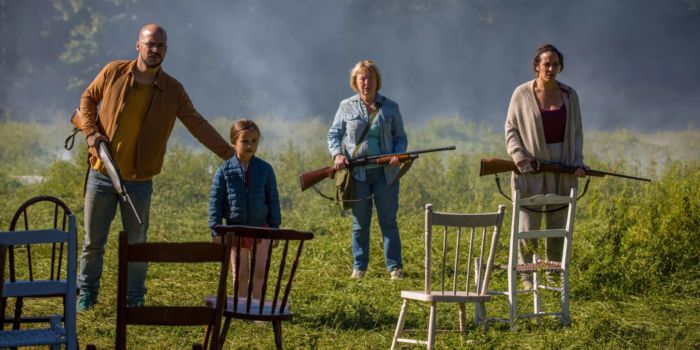
Ravenous
Even if it’s about zombies, Ravenous is a relatively calmly somber film — and that’s a good thing. Whereas other flicks about this flesh-eating menace capitalize on gore first and foremost, this film explores other tricks to elevate the already crowded genre.
The film follows various disparate characters who eventually meet-cute by the second act, led by sci-fi nerd and zombie slayer Bonin (Marc-Andre Grondin). Set in the lush countryside of Quebec, we follow the group as they attempt to escape a deadly zombie invasion.
The film isn’t completely devoid of zombie tropes. There’s hacking and slashing here, plus copious amounts of blood and gore. Whereas other zombie films convert horror into adrenaline, Ravenous makes something more contemplative, more level-headed out of it.
The result is a zombie film that’s still brutal but flavored with wry humor and surreal setpieces that don’t rely on violence to be effective. Don’t get us wrong — there’s nothing inherently bad about braindead zombie films (there’s a pun in there somewhere). But to see one so understated is really refreshing.
Director: – Robin Aubert Screenplay: Robin Aubert – Cast: Marc-André Grondin, Monia Chokri, Charlotte St-Martin – Run Time: – 1h 40m
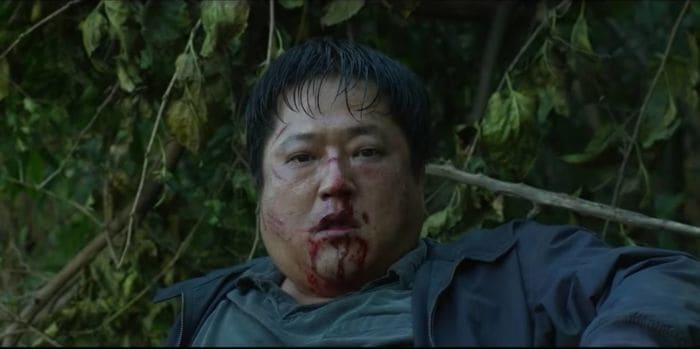
The Wailing
Koreans just know how to make awesome horror films, don’t they? The Wailing is yet another addition to South Korea’s stellar roster of slow-burn horror-dramas.
It’s a delicious and scary story that unravels slowly but surely over two-and-a-half hours. That’s highly unusual; most films can do it in just an hour and a half. But The Wailing is a special one in that it’s a horror film cling-wrapped in an epic treatment.
The film follows Jong-Goo (Kwak Do-won), a potbellied cop in a town so calm and safe Jong-Goo barely has any reason of being a cop. However, a wave of brutal murders disrupts the town’s quiet, and that’s when Jong-Goo realizes dark forces are behind the new violence.
The Wailing is crammed with so many things that on paper it really shouldn’t work. But it does, and you better not miss it.
Director: Hong-jin Na – Screenplay: Hong-jin Na – Cast: Jun Kunimura, Jung-min Hwang, Do-won Kwak – Run Time: – 2h 36m
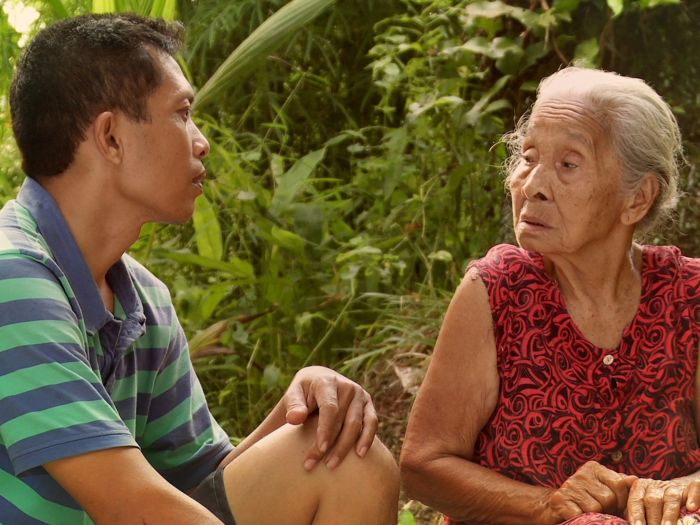
The Look of Silence
The second documentary on this list, The Look of Silence is Joshua Oppenheimer’s second outing after the harrowing The Act of Killing. It acts as an extension of that first film, following a man who confronts the people who killed his brother during Indonesia’s 1965 anti-Communist genocide.
The lenses close on Adi Rukun, a 44-year-old optometrist who finally confronts his brother’s killers face-to-face. Whereas The Act of Killing was a portrait of the men who murdered, beheaded, and tortured people in the decades-old purge, The Look of Silence is a startlingly tender perspective on those wronged, and the perils that come with seeking truth and closure.
Director: Joshua Oppenheimer – Cast: Adi Rukun, M.Y. Basrun, Amir Hasan – Run Time: – 1h 43m
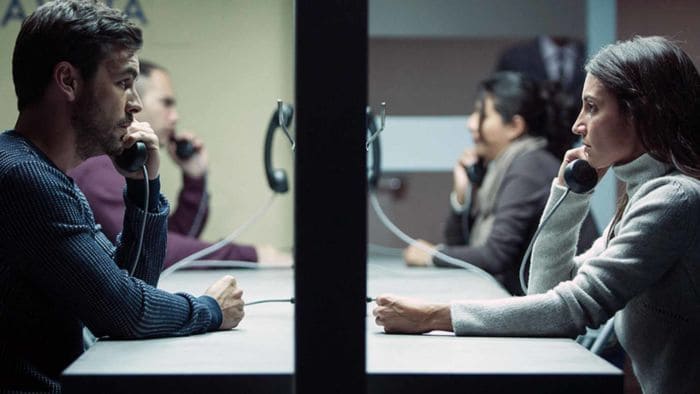
The Invisible Guest
Lies are organisms of tragedy. They spread quickly and, when left untreated, evolve into more a more sinister form than what they originally began with, bringing pernicious consequences and fraying relationships overtime.
The Invisible Guest is about how one lie can develop into a full tragedy. It follows a wealthy Barcelona businessman, accused of murdering his mistress, who has just three hours to prepare a compelling testimony proving he didn’t do it.
Adrian Doria (Mario Casas) says his lover Laura (Barbara Lennie) and him were attacked by someone unseen and shortly thereafter vanished from their hotel room.
The Invisible Guest tells its twists and turns through flashbacks, exposing the labyrinthine mazes of memory mixed with intent and self-deception. Emboldened by a taut, tense screenplay navigating these mazes with serpent-like fluidity, the film illustrates how one tiny lie can ruin lives and families.
Director: – Oriol Paulo Screenplay: Oriol Paulo – Cast: Oriol Paulo – Run Time: – 1h 46m
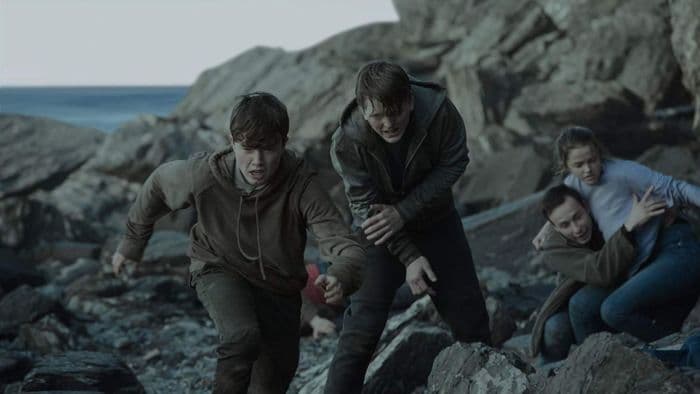
22 July
On July 22, 2011, a far-right extremist detonated a car bomb in Oslo, Norway before heading to carry out a mass shooting at a leadership camp for teens. The death toll amounts to 77, marking one of the most devastating terrorist attacks in Norway.
22 July, by British director Paul Greengrass, is a dramatization of that tragedy. Greengrass is no stranger to depictions of real-life events, having made The Murder of Stephen Lawrence, about the racist murder of a London teenager; and Bloody Sunday, which recounts the Irish civil rights protest march in 1972.
Not all critics were enamoured by Greengrass’ dramatization of that terrible attack in Norway, with some accusing the filmmaker of making news items into dramatic stories. At the very least, it’s a haunting meditation on useless terrorism that send waves of distraught across the country.
Director: Paul Greengrass – Screenplay: Paul Greengrass, Åsne Seierstad – Cast: Anders Danielsen Lie, Jonas Strand Gravli, Jon Øigarden – Run Time: – 2h 23m
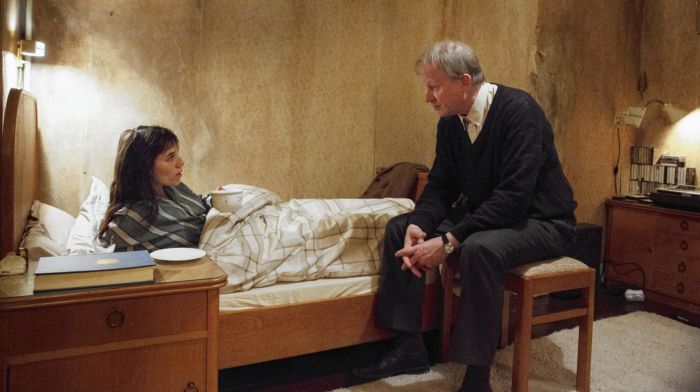
Nymphomaniac
Split into two volumes, Nymphomaniac is a no-holds-barred, no-punches-pulled-out kind of film about, in the main, sex.
Employing deeply graphic and disturbing visuals to explore lust and desire, Lars von Trier’s film features a lot of unpleasant sex, some of them even unnerving. But, also, it has a lot of talking, which isn’t usually found on films about sex.
This anti-raunchy, anti-eroticism is a case study, featuring a woman named Joe (Charlotte Gainsbourg), who’s found by a recluse bookworm severely beaten in an darkled alleyway. He takes her home, patches her up, and begins a conversation about her sexual history, from when she was a little girl to that alley.
Nymphomaniac’s highly absurd and sensual interjection of images that punctuate, accompany, and undermine the very concept of sex, instead of amplifying it. It’s a film that deconstructs titillation at to very simple shapes.
Director: Lars von Trier – Screenplay: Lars von Trier – Cast: Charlotte Gainsbourg, Stellan Skarsgård, Stacy Martin – Run Time: – 5h 25m
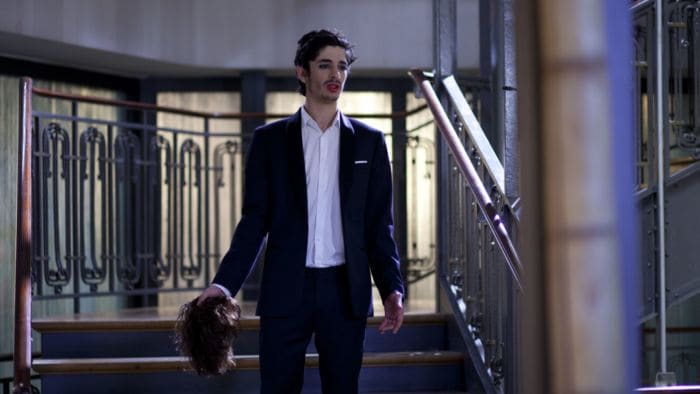
Nocturama
This intense but artsy French thriller follows a coordinated terror attack in Paris. Filming wrapped just before ISIL staged its horrifying November 2015 attack on multiple targets across the city, injecting the film with potent yet unintended realism.
In Nocturama, we watch ten young radicals right-wings execute multiple assassinations and bombings, disrupting Parisian bliss. No mass civilian casualties come out of this spree, fortunately, but by the end the message is clear.
Nocturama is one of the most psychologically acute dramas in the last 10 years, wasting not one second of its time with pointless blathering; taking care every moment, instead, to provide a face to terror, and demand you to contemplate within yourself whether or not you can empathize with them like their real human beings and not mere artefacts of chaos.
Director: Bertrand Bonello – Screenplay: Bertrand Bonello – Cast: Finnegan Oldfield, Vincent Rottiers, Hamza Meziani – Run Time: – 2h 10m
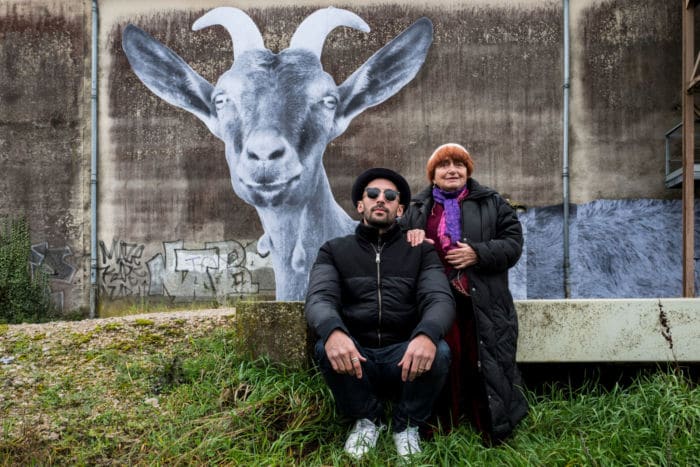
Faces Places
If you’re reading this list, chances are you’re a beginning cinephile. As such, this might be the first you’ll hear of Agnes Varda. You’re better off looking at her early work to get a sense of Varda’s cinematic touches, but Faces Places is required watching.
Why? Well, for starters, it puts Varda on a road trip with photographer JR around the French countryside. This setups bears the markings of a hijinks, laugh-out-loud screwball comedy. However, it turns into a meaningful discourse on life, art, people, and history.
Mainly, Faces Places is as much about the people Varda and JR meet along the way as the journey itself. Both artists travel via van that doubles as a portable studio; the vehicle acting as the workstation. In their sojourn, Varda and JR take photographs of live things, mostly people and animals. Then they print it instantly and plaster them all over, giving decrepit walls blissful decor.
Director: JR, Agnès Varda – Screenplay: JR, Agnès Varda – Cast: Agnès Varda, JR, Jeannine Carpentier – Run Time: – 1h 34m
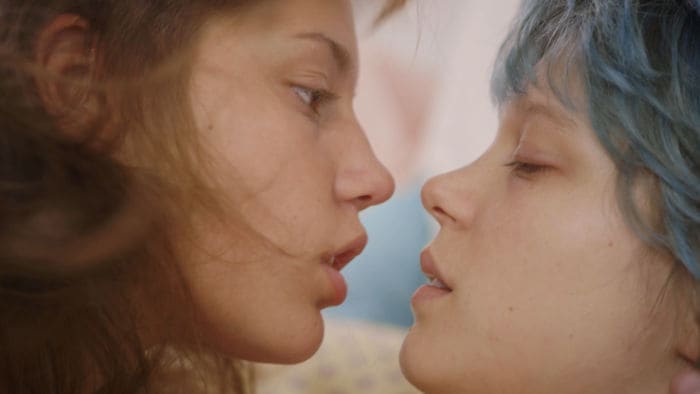
Blue Is The Warmest Colour
Blue is certainly not the warmest color, but for high school student Adèle (Adèle Exarchopoulos), it is. After all, blue is the colour of Emma’s hair.
The story is simple. Girls meets girl. Girl falls in love with girl. Girl experiences love, in all its vicissitudes, contraindications, and complications. So jam-packed this film is with emotion, desire, and youthful yearning, that the three-hour runtime never feels stretched.
Adapted from a French graphic novel by Julie Maroh, Blue Is The Warmest Colour is as bold and dazzling as the material upon which it’s based. There is no sex scene it will fast forward through, no display of heartbreak it will skip, and no ugly-crying it’ll omit.
Director: Abdellatif Kechiche – Screenplay: Abdellatif Kechiche, Ghalia Lacroix – Cast: Léa Seydoux, Adèle Exarchopoulos, Salim Kechiouche – Run Time: – 2h 20m
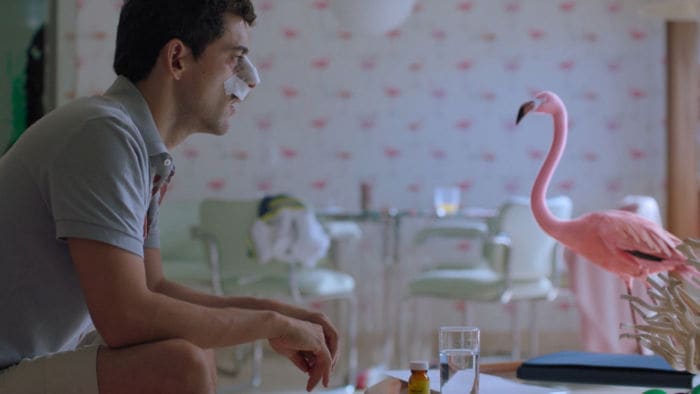
Time Share is a pizzle disguised as a film. It opens with a married couple, Andres (Miguel Rodarte) and Gloria (Montserrat Marañon), as they tearfully talk about something sorrowful that’s not mentioned.
Then, five years, later, we meet Pedro (Luis Gerardo Mendez) and Eva (Cassandra), a couple with marital problems of their own who are checking into an Everfields timeshare with their child. Everfields is part of a chain that promises “paradise” and “healing” to visitors. Problem is, another family had been scheduled there, too; Everfields overbooked. So, they’re forced to share a space.
What follows is a story unlike any other, at once an engrossing psychological thriller and a vigorously intriguing case study on paranoia. It’s a on-the-edge-of-your-seat kind of film, albeit with slightly more intellectual flair.
Director: Sebastián Hofmann – Screenplay: Julio Chavezmontes, Sebastián Hofmann – Cast: Luis Gerardo Méndez, Miguel Rodarte, RJ Mitte – Run Time: – 1h 36m
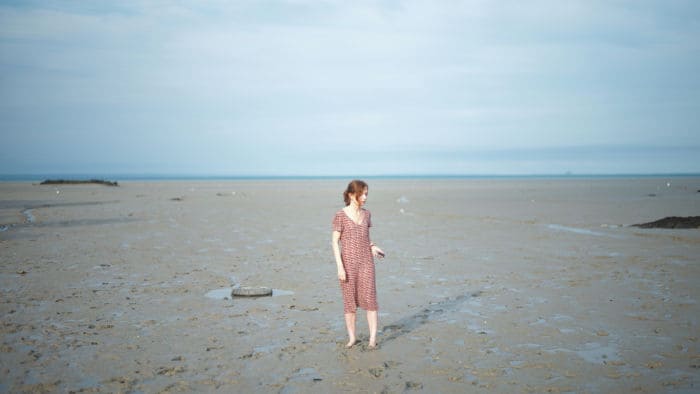
Things To Come
Nathalie (Isabelle Huppert), is a French philosophy professor whose husband, Heinz (André Marcon) one day announced he no longer wants to be with her after 25 years of staying married.
She takes the rejection well. Or at least she pretends to take it well. Really, though, it triggers in her this emptiness, if not a looming sense of dread that prances on her from ever corner.
Unlike many films about women abandoned by their husband, Things To Come isn’t drenched on grief. Rather, it’s a beautiful and moving story about starting over.
Whereas other filmmakers soak their heroine in mournful yearning and make caricatures out of their pain, Mia Hansen-Løve steers clear of this narrative hostility, choosing instead to thoughtfully focus on a woman who’s going through big changes.
Director: Mia Hansen-Løve – Screenplay: Mia Hansen-Løve – Cast: Isabelle Huppert, André Marcon, Roman Kolinka – Run Time: – 2h 2m
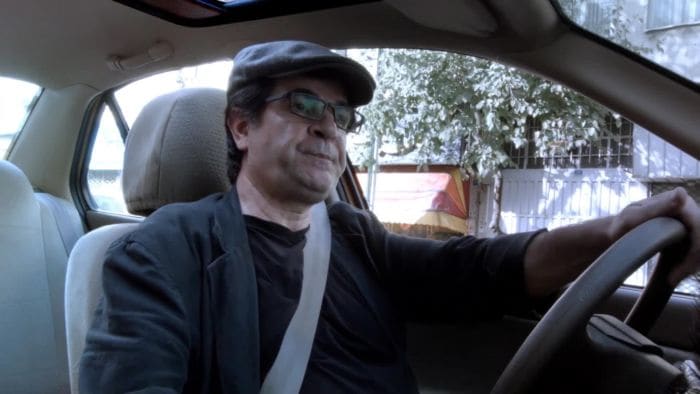
Taxi
Taxi is an incredible film because its filmmaker is also incredible. You’ll like know more about Jafar Panahi once you stumble upon more niche fare, but let’s just say he’s a martyr for his art, willing to do anything just to make one-of-a-kind-films.
Taxi is the perfect example of that, in which Panahi poses as a taxi driver in Iran to offer free rides in exchange for stories. Armed with a wheel and tiny dashboard camera, Panahi sets off in the streets of Tehran.
They’re a varied bunch. There’s a mugger by trade who opposes thieves so much he says he’s going to hang some “just to shake them up.” There’s a victim of an accident, head dripping with blood, who needs to get to a hospital. Then a man named Omid who goes around selling DVDs like they’re hot black market items.
It’s best to leave the rest unspoiled, but we should tell you that this film is a million times better than all Carpool Karaoke episodes combined.
Director: Jafar Panahi – Screenplay: Jafar Panahi – Cast: Jafar Panahi – Run Time: – 1h 22m
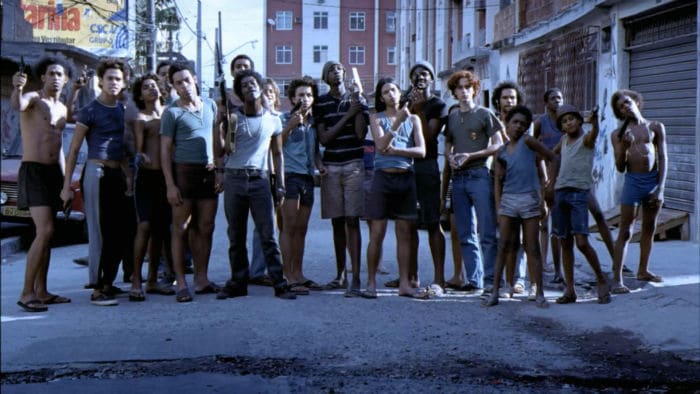
City of God
City of God begins with a chicken being prepared for slaughter. This sets the tone of the film immediately, making clear with vapid sentimentality the cutthroat nature of this Brazilian slum, whose residents’ lives are no more important than a chicken’s.
Adapted from a novel by Paulo Lins, City of God takes you to the Brazilian ‘60s and ‘70s, dab smack in a lawless slum of Rio de Janeiro where young kids earnestly participate in violent street gangs.
City of God is a tale of violence, but more importantly, cyclical poverty — it asserts that even if you eliminate gangs, a fresh new array of bloodthirsty kids stand poised to take over. Many critics have said it’s too unnerving to watch, some of its images too violent and its sequences too high-octane.
In any case, you’ll come away with a sense that life isn’t all about rainbows and magic puddles, especially outside the United States.
Director: Fernando Meirelles, Kátia Lund – Screenplay: Bráulio Mantovani – Cast: Alexandre Rodrigues, Leandro Firmino, Matheus Nachtergaele – Run Time: – 2h 10m
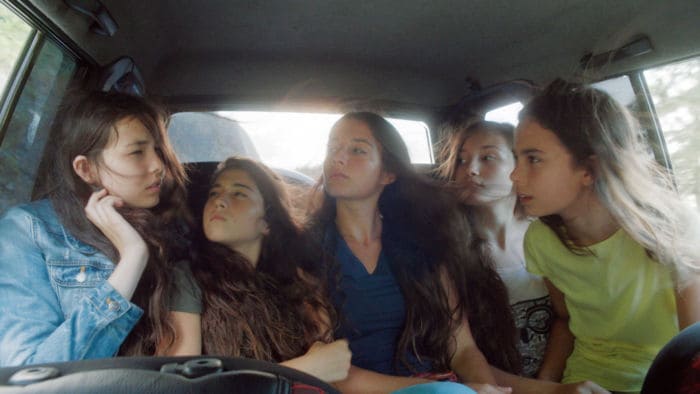
Mustang
In this heartfelt story set in a Turkish village, five orphaned sisters contend with strict house rules and must find means of escape as members of their family prepare arranged marriages for each one of them.
Aged roughly between 12 and 17, the girls live with their grandmother and hostile uncle in a small turkish village. Their grandmother is the kind of woman who thinks playing around with boys, sitting on each other’s shoulders, and doing all sorts of typical teenage stuff makes them “whores.”
They’re eventually removed from school, their phones are confiscated, and they’re forced to wear uncomfortable and demeaning clothing as punishment for their whoreness. And thus, an escape plans is hatched. You have to watch to find out the rest, but you won’t be disappointed.
Director: Deniz Gamze Ergüven – Screenplay: Deniz Gamze Ergüven, Alice Winocour – Cast: Günes Sensoy, Doga Zeynep Doguslu, Tugba Sunguroglu – Run Time: – 1h 37m
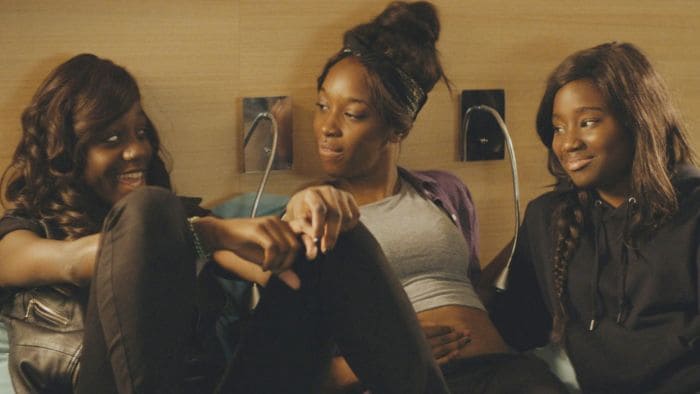
Girlhood
Girlhood, from Céline Sciamma, is a wrenching coming-of-age about Marieme (Karidja Touré), whom Sciamma paints as an overlooked girl from an overlooked subculture. Here, beautify is defined by all except themselves, and self-worth is a public discourse.
We first meet Marieme when she’s 15, a precarious place in which she’s firmly out of childhood but not quite yet. She doesn’t have good grades, and for that reason, the promise of being nothing more than an office cleaner than her mother unsettles her.
But she’s been nothing but the cookie-cutter good daughter, preparing meals and looking after her two young sisters (Simina Soumaré and Chance N’Guessan).
Girlhood is about small moments. Look at Marieme wincing. What does it say? Look at the girls deflating so willingly when the boys come around. What does that say? For us, not much. For Marieme, everything.
Director: Céline Sciamma – Screenplay: Céline Sciamma – Cast: Karidja Touré, Assa Sylla, Lindsay Karamoh – Run Time: – 1h 53m
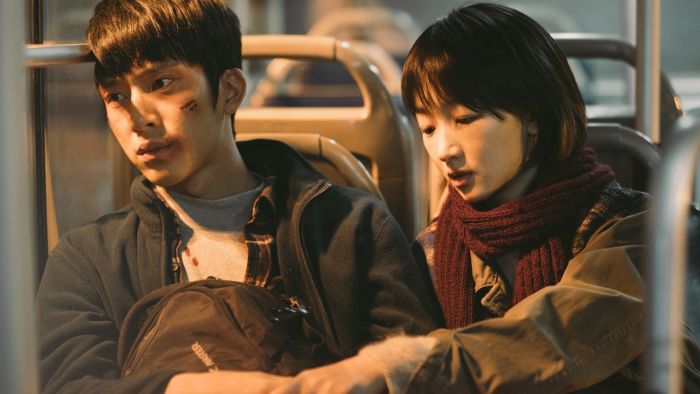
Us And Them
Us and Them is a bittersweet love story about Jianping (Jing Boran) and Xiaoxiao (Zhou Dongyu), split into two timelines. In one, the year is 2018, and the two reconnect during a delayed flight. In the other, we’re seeing the lovebirds grow into each other, from their chance meeting on a train in 2007 to the very bitter end.
Don’t get the film wrong, though — Us and Them is not merely romanticizing the past. Whereas other films about heartbreak exploit the “will they or won’t they” trope to death, you already know that Us and Them is a “won’t they” story, and thus is more interested in character than plot.
Us and Them doesn’t care much about what happened. Instead, it cares, in the main, about who Jianping and Xiaoxiao are people — as separate individuals. Who are we when we’re not with the person we love? It asks.
Director: Rene Liu – Screenplay: Wei An, Shing-Ming Ho, Rene Liu, Yu Pan, Yuan Yuan – Cast: Boran Jing, Dongyu Zhou, Zhuangzhuang Tian – Run Time: – 2h
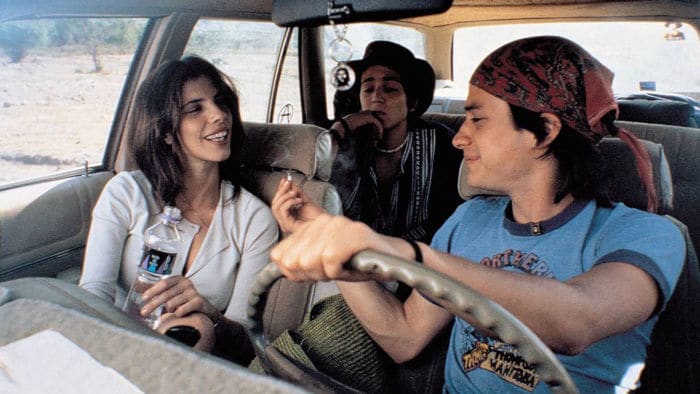
Y Tu Mamá También
Closing this list is another film from Alfonso Cuarón called Y Tu Mamá También, which, while released in 2001, is still a thing of splendor in cinematic circles. It follows the story of two sex-obsessed 17-year-old best friends, Tenoch (Diego Luna) and Julio (Gael Garcia Bernal) who are in search of an adventure.
To keep from spoiling anything, let’s just say Y Tu Mamá También is a sprawling work of seduction, but also tenderness and conflicting feelings about oneself. Amazingly, though, the eroticism, while certainly titillating, isn’t just raunchy for raunch’s sake. They are instead used to illustrate how lost we can become in the journey to find ourselves.
Fresh, poignant, and immersive, Y Tu Mamá También is a film about emotional claustrophobia — a sharp and compelling one, at that.
Director: Alfonso Cuarón – Screenplay: Carlos Cuarón, Alfonso Cuarón – Cast: Maribel Verdú, Gael García Bernal, Daniel Giménez Cacho – Run Time: – 1h 46m

